
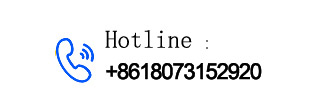
— Blogs —
—Products—
 Consumer hotline +8618073152920
Consumer hotline +8618073152920 WhatsApp:+8615367865107
Address:Room 102, District D, Houhu Industrial Park, Yuelu District, Changsha City, Hunan Province, China
Product knowledge
Time:2025-11-21 15:04:09 Popularity:286
Across vast farmlands that carry farmers’ hard work and hopes, crop management depends not only on experience but also on climate, soil, and crop variety—among which weather conditions are the most decisive factor affecting growth, yield, and quality.
NiuBoL agricultural weather stations emerge as an essential intelligent tool for modern farming, equipped with advanced sensors and smart data analysis capabilities. They deliver precise data support to farmers, enabling scientific, efficient, and high-quality agricultural production.
An agricultural weather station is a compact meteorological observation system installed directly in the field. It continuously and accurately monitors key parameters such as temperature, humidity, light intensity, wind speed and direction, precipitation, and atmospheric pressure. Through data collection, transmission, and analysis, farmers and agricultural experts gain real-time insight into field conditions, optimizing management and achieving refined, intelligent, and scientific farming practices.
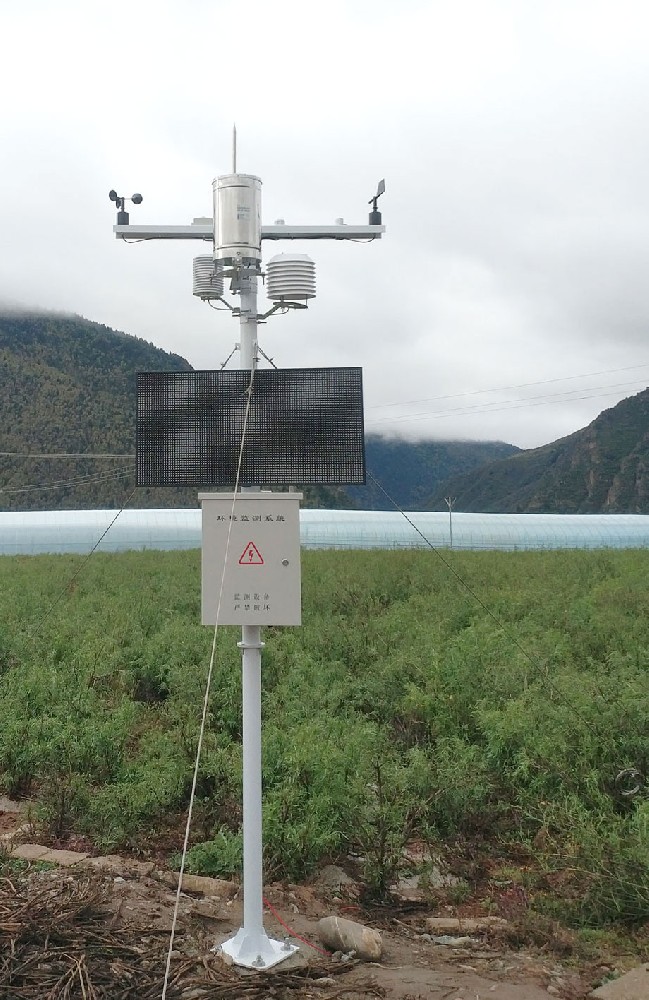
Water management is one of the most critical aspects of agricultural production. NiuBoL agricultural weather stations use soil moisture and precipitation sensors to monitor field moisture status in real time, providing a scientific basis for precision irrigation.
- Soil Moisture Sensors: Employ dielectric constant or FDR technology to measure soil water content accurately across multiple depths and soil types. Data remains stable and unaffected by salinity, fertilizers, or pesticides.
- Rain Gauge: Records rainfall amount and intensity in real time, preventing over-irrigation and water waste.
Farmers can schedule irrigation timing and volume based on sensor data, ensuring crops grow under optimal moisture conditions, thereby increasing both yield and quality while maximizing water efficiency. When integrated with smart irrigation systems, the station can automatically control valves, achieving fully automated precision irrigation and reducing labor costs.
Meteorological conditions are closely linked to pest and disease outbreaks. Agricultural weather stations predict trends using temperature, humidity, and wind data, offering farmers science-based prevention strategies.
- Temperature & Humidity Sensors: Monitor air and soil conditions to identify environments conducive to pests and diseases.
- Wind Speed & Direction Sensors: Optimize pesticide application timing and coverage, reducing chemical usage while improving efficacy.
Data-guided prevention protects crop health, minimizes environmental impact, and promotes green agriculture. In dry or humid seasons, microclimate data also helps adjust planting and cultivation patterns to enhance disease resistance and growth stability.
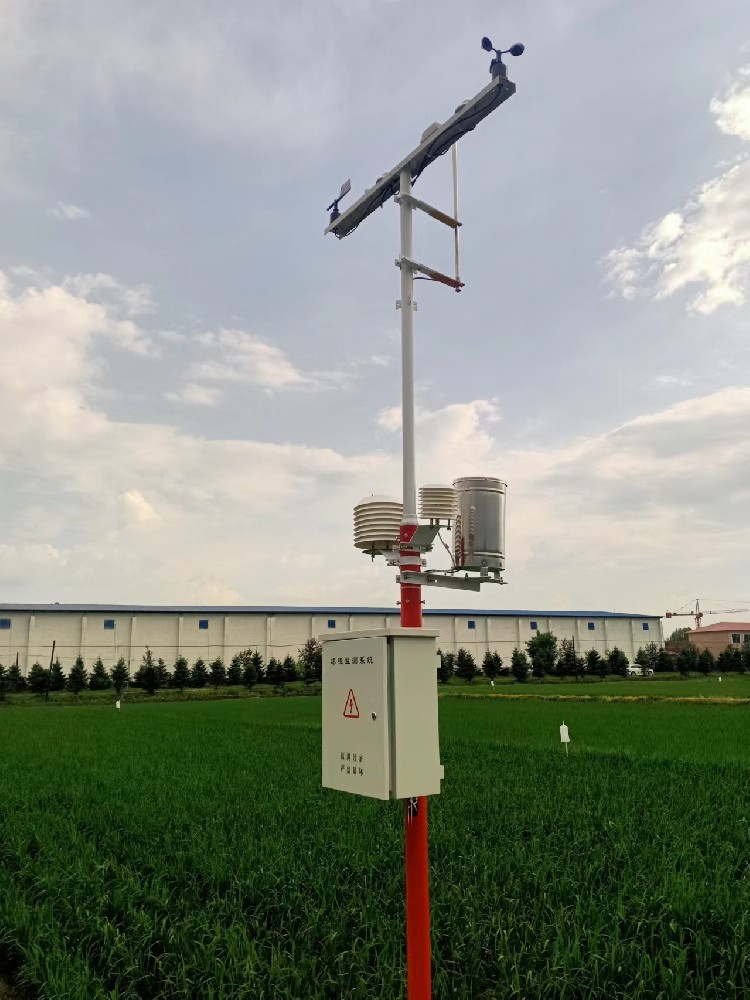
The real-time, accurate data collected by agricultural weather stations forms the foundation of modern agricultural meteorological services. Meteorological agencies can analyze crop growth patterns, weather risks, and pest trends to deliver tailored forecasts, warnings, and advisory services.
- Extreme Weather Alerts: Early warnings for drought, heavy rain, hail, etc., enabling proactive disaster mitigation.
- Scientific Farming Guidance: Optimized timing for fertilization, irrigation, sowing, and harvesting.
- Agricultural Insurance Support: Objective data for claim verification, protecting farmers’ interests.
These data-driven services transform farming from experience-based to science-based management, improving decision efficiency, reducing risk, and laying a solid data foundation for agricultural modernization.
Small-scale variations in temperature, humidity, light intensity, and wind within fields—known as microclimates—profoundly affect crop performance. NiuBoL field microclimate stations accurately monitor these factors to provide actionable insights.
- Light Intensity Sensors: Measure photosynthetically active radiation for photosynthesis management.
- UV Sensors: Assess ultraviolet impact on crops and pests.
- Barometric Pressure Sensors: Support short-term weather forecasting.
Microclimate analysis enables farmers to fine-tune operations, reduce risks from extreme weather, and improve yield and quality. It also supplies valuable experimental data for breeding programs and research institutions.
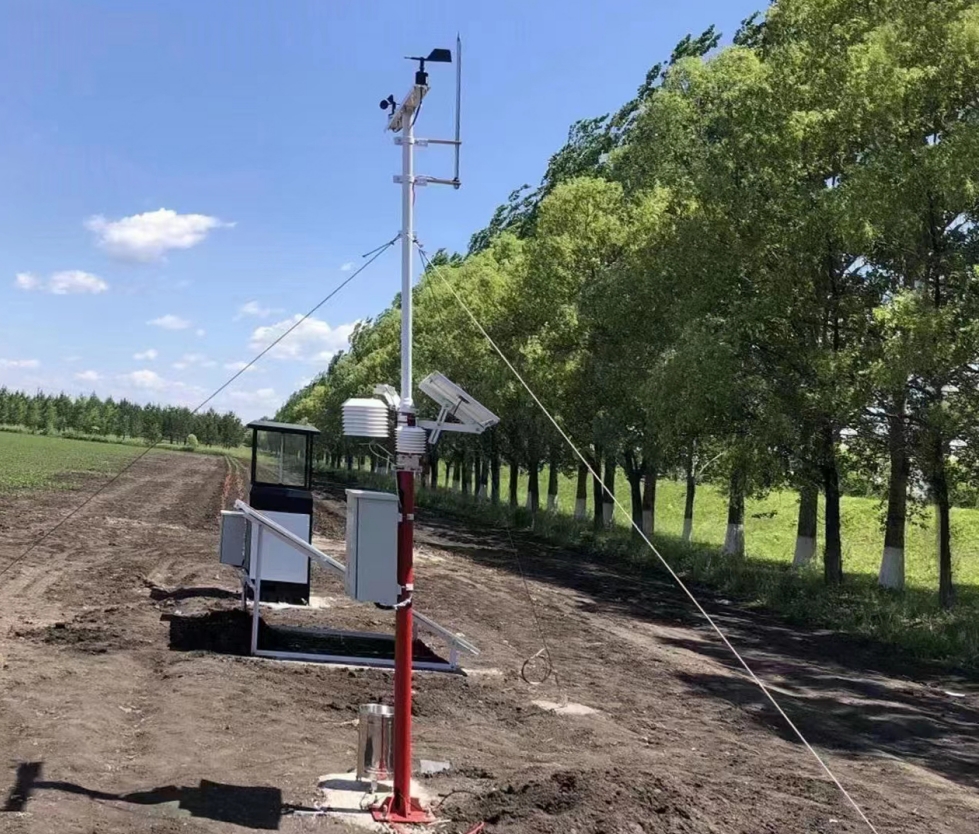
NiuBoL agricultural weather stations integrate multiple high-precision sensors for comprehensive, multi-dimensional monitoring and data fusion:
- Temperature sensors: Air and soil temperature with high accuracy and fast response
- Humidity sensors: Air and soil humidity for irrigation and disease control
- Wind speed & direction sensors: Aid spraying and wind damage prevention
- Rain gauge: Real-time precipitation data for drainage and irrigation planning
- Light/UV sensors: Optimize photosynthesis and growth regulation
- Soil moisture sensors: Multi-depth soil water and temperature monitoring for full-profile analysis
- Barometric pressure sensor: Reference for meteorological warnings
Data is transmitted in real time via RS485, 4G, or WiFi to cloud platforms, allowing farmers to monitor fields remotely from phones or computers. The system supports data export and third-party platform integration for research, management, and government use.

No—only a simple foundation and power supply are needed; no large-scale construction required.
Yes—supports RS485, 4G, and WiFi for instant cloud upload and access via mobile or PC.
Yes—IP65/IP67 protection ensures stable operation from -40°C to +85°C in harsh conditions.
Yes—dielectric/FDR technology works reliably across all soils, unaffected by salinity or chemicals.
Yes—supports up to 10-layer sensors for comprehensive shallow- and deep-soil analysis.
Yes—supports API, Modbus, and Excel export; seamlessly connects to government, research, and farm management platforms.
Absolutely—perfectly compatible for precise water and fertilizer management with minimal waste.
No—maintenance is simple (periodic cleaning); solar-powered systems run reliably for years with minimal consumables.
Yes—supports light, UV, soil pH, tilt, GPS, and other modules to meet diverse needs.
Precise meteorological and soil data enable scientific decisions, reduce disaster losses, and improve water/fertilizer efficiency—significantly boosting both yield and quality.
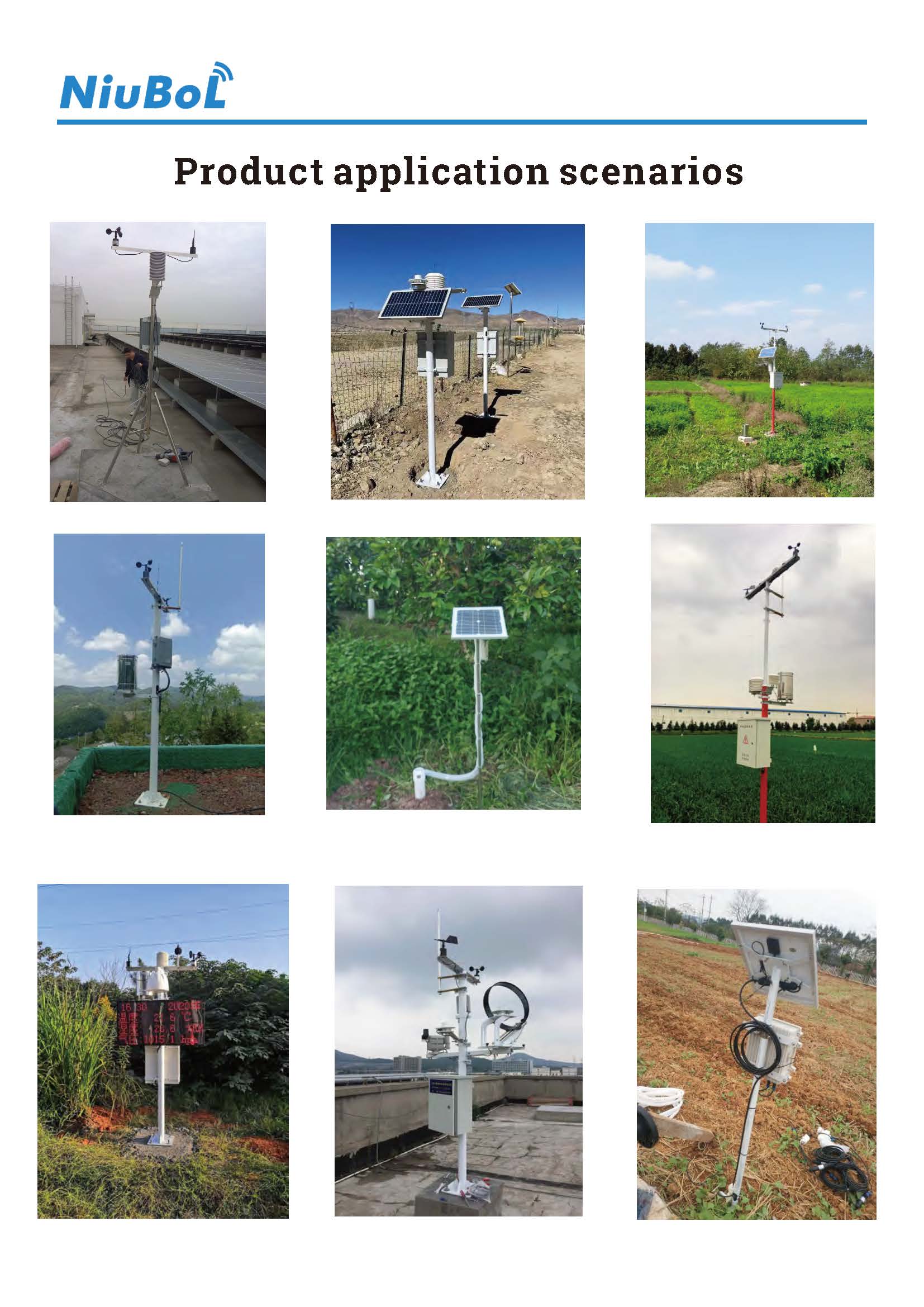
With its high precision, versatility, and intelligent features, the NiuBoL agricultural weather station has become a core tool in modern farm management. From precision irrigation and pest control to microclimate monitoring, scientific research, and data analysis, it delivers comprehensive, reliable data support. Through real-time monitoring, remote management, and smart analytics, it not only enhances production efficiency and output but also provides a solid foundation for green, sustainable agriculture.
Choosing a NiuBoL agricultural weather station means building a strong foundation for scientific farming, precision management, and the construction of intelligent farmland.
Prev:Critical Role of Field Weather Stations in Agriculture
Next:NiuBoL Compact Weather Station: High-Precision, Portable, Multi-Functional Meteorological Monitoring
Related recommendations
Sensors & Weather Stations Catalog
Agriculture Sensors and Weather Stations Catalog-NiuBoL.pdf
Weather Stations Catalog-NiuBoL.pdf
Related products
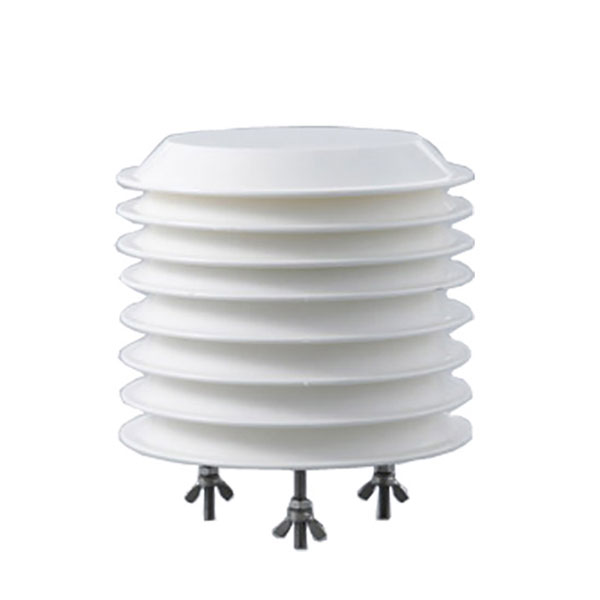 Combined air temperature and relative humidity sensor
Combined air temperature and relative humidity sensor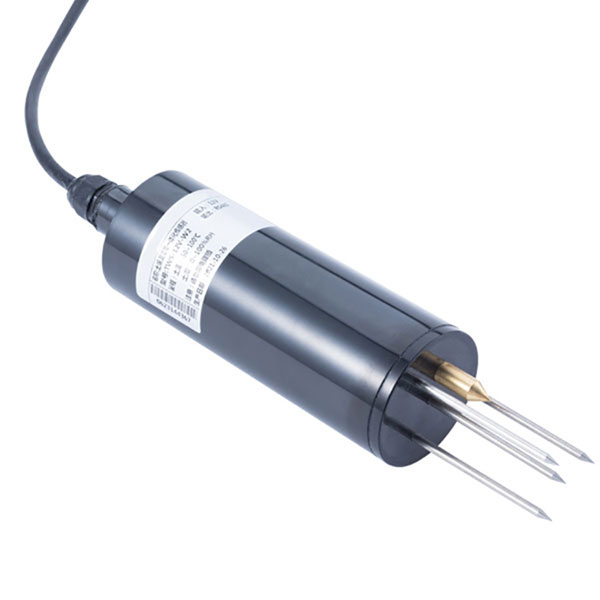 Soil Moisture Temperature sensor for irrigation
Soil Moisture Temperature sensor for irrigation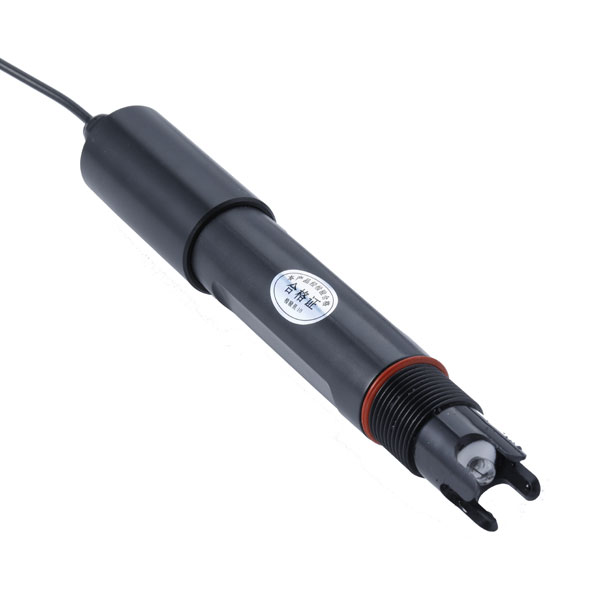 Soil pH sensor RS485 soil Testing instrument soil ph meter for agriculture
Soil pH sensor RS485 soil Testing instrument soil ph meter for agriculture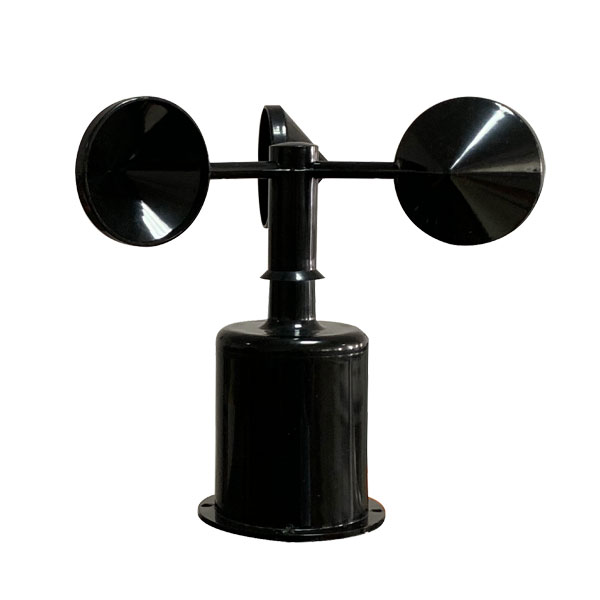 Wind Speed sensor Output Modbus/RS485/Analog/0-5V/4-20mA
Wind Speed sensor Output Modbus/RS485/Analog/0-5V/4-20mA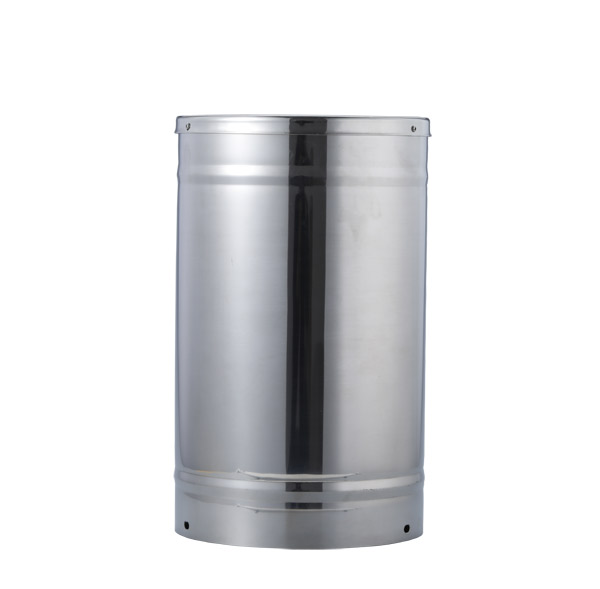 Tipping bucket rain gauge for weather monitoring auto rainfall sensor RS485/Outdoor/stainless steel
Tipping bucket rain gauge for weather monitoring auto rainfall sensor RS485/Outdoor/stainless steel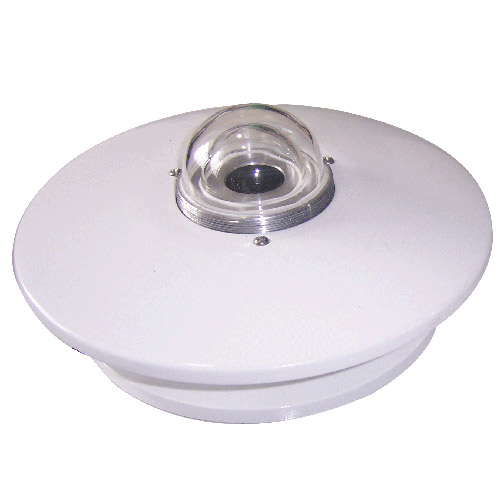 Pyranometer Solar Radiation Sensor 4-20mA/RS485
Pyranometer Solar Radiation Sensor 4-20mA/RS485
Screenshot, WhatsApp to identify the QR code
WhatsApp number:+8615367865107
(Click on WhatsApp to copy and add friends)
